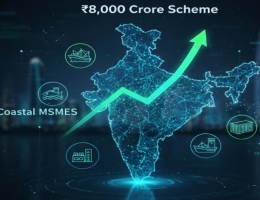
Car maker charters three flights to airlift raw materials and parts from the S-E Asian countries to
Car maker charters three flights to airlift raw materials and parts from the S-E Asian countries to its Chennai plant
One of the country's largest car maker (name kept a secret) had to charter three flights in the last 2-3 months to airlift raw materials and parts from the South East Asian countries to its Chennai plant as sea transportation continued to be a challenge due to the non-availability of containers to and from India.
A company official, requesting anonymity, said that over 150 metric tonnes of raw materials and components were brought into the country by air in three months. These would have, otherwise, come by sea. His company expects to do a few more charter trips in the coming months considering the container shortage is not expected to ease in the near future.
“We don't have a choice but to airlift so that our production here will not be impacted,” said the official adding that logistics cost had gone up nearly 8-10 times, the official added.
The company was also forced to increase the inventory levels to address the “uncertainity” when it comes to shipping lines' schedule.
The company and its suppliers used to import around 400-500 containers every month through 20 ships. A present only half of the ships are in operation, while demand from the companies has increased. The transit time, which earlier used to be around two weeks, has now increased to around 30-45 days.
Satish Sharma, president, Asia Pacific, Middle East & Africa at Apollo Tyres, added that container shortage had impacted around 10% of the company's export volumes.
"Freight rates have shot up and are at 2-3X of the levels we were at, before the shortage started. In addition, the time to place an order for a container has also gone up from 2 days in the past, to almost 7 days now.”
Zen Linen International, one of leading textile exporters, was forced to halt manufacturing at the company's unit in MEPZ SEZ, Chennai for nearly 10 days since the company could not move the products from the manufacturing units due to shortage of containers.











